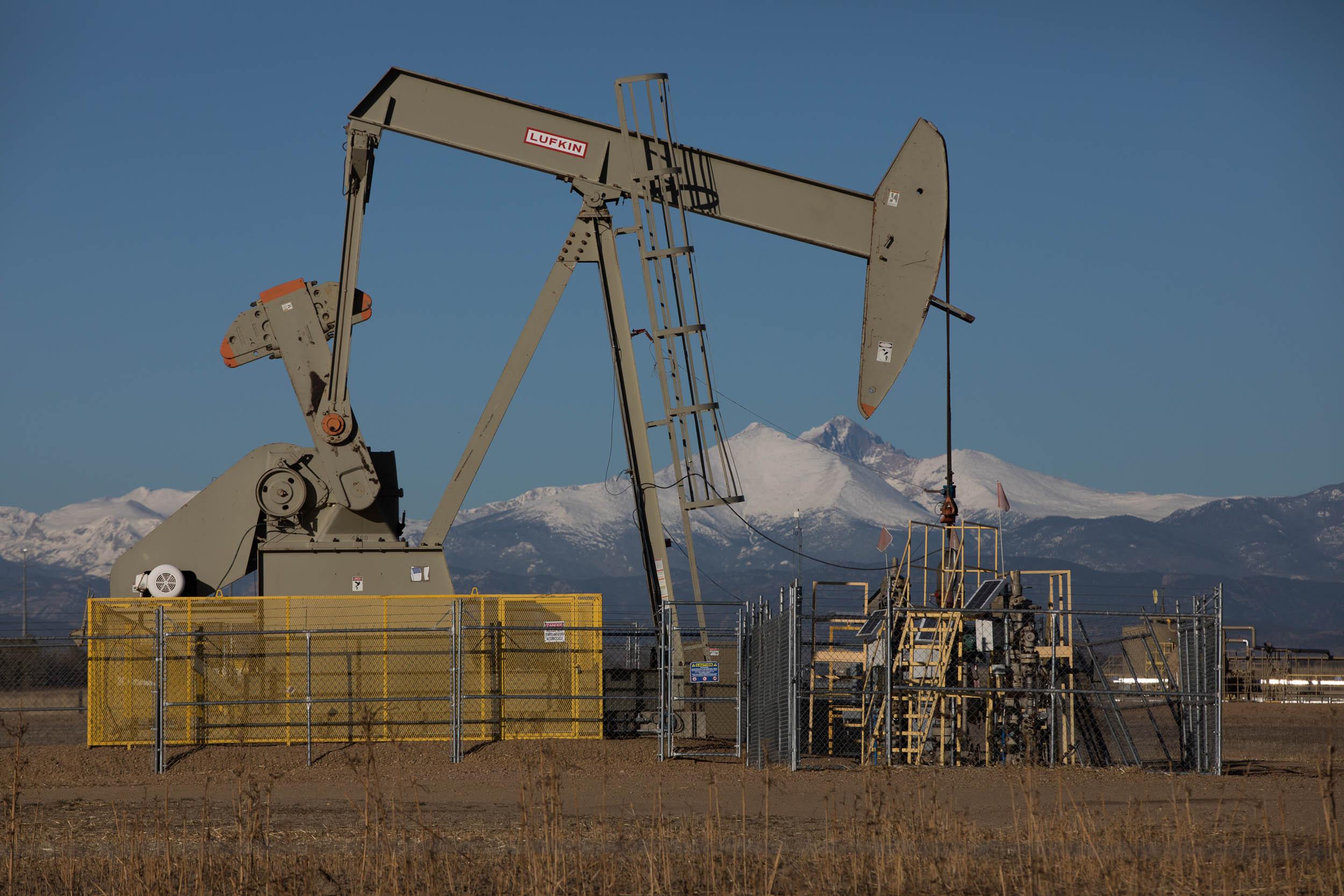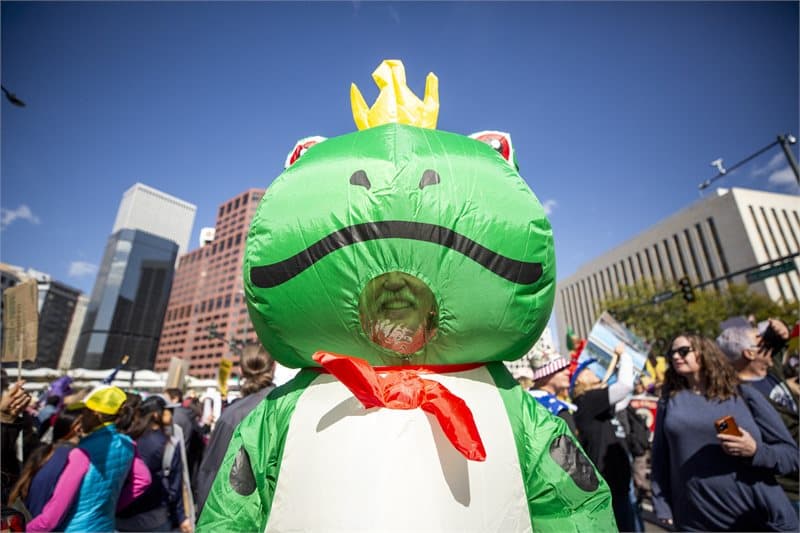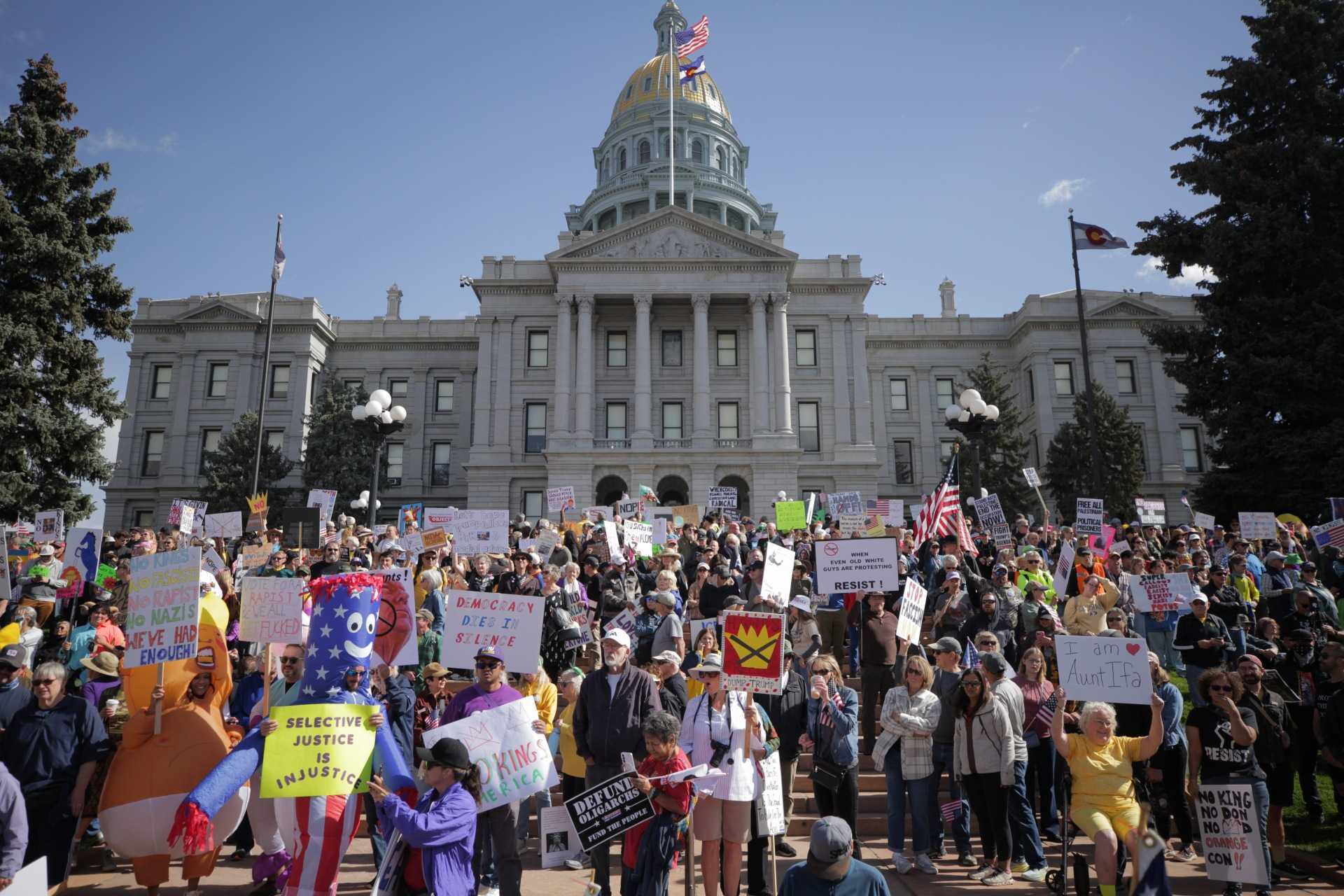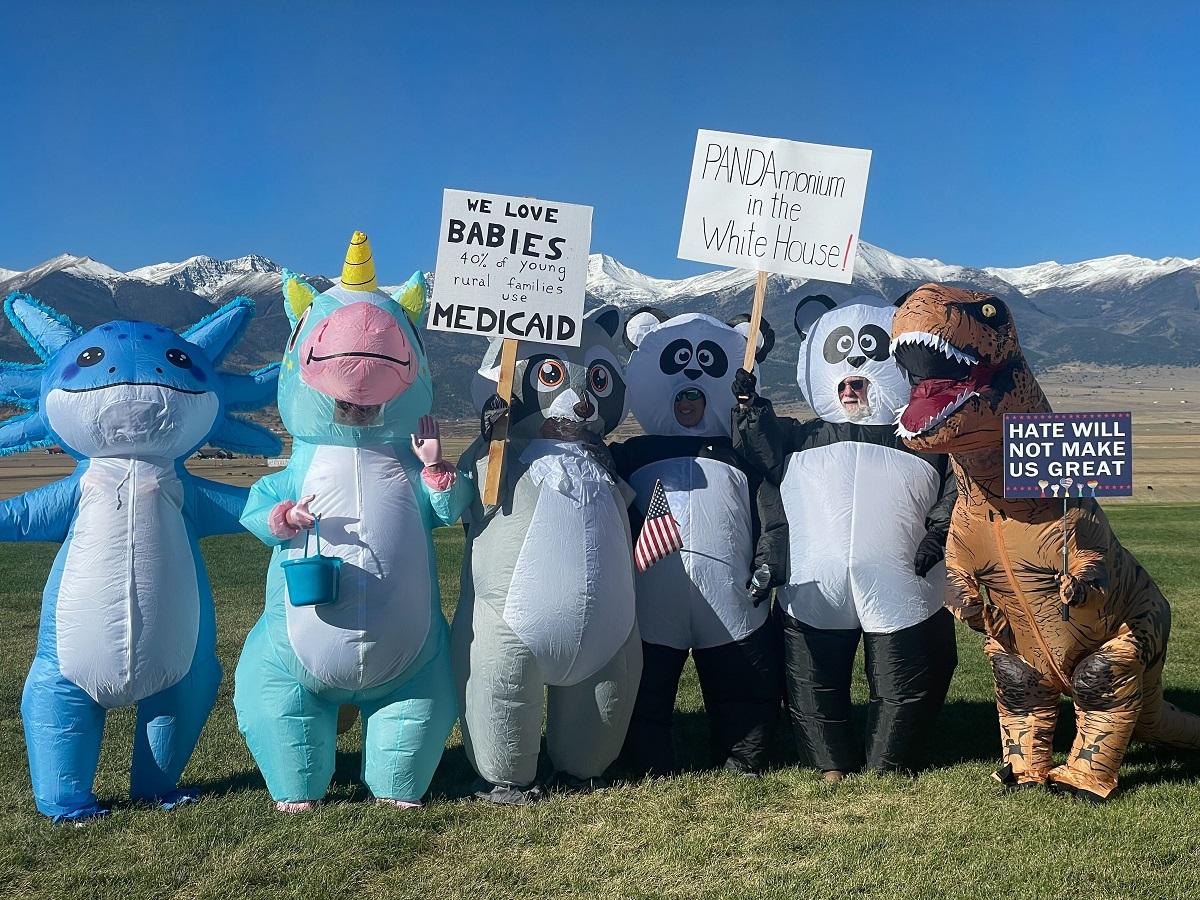
Updated 6:31 p.m.
Gov. Jared Polis on Monday announced a new truce between the oil and gas industry and environmental groups, ending the prospect of multiple ballot measures and legislative proposals related to fossil fuel production. It also proposes turning drilling into a major source of new public transit funding.
In a press briefing at the state Capitol, Democratic legislative leaders said they plan to kill a set of air quality legislation meant to reduce ozone and rein in industry air pollution. Instead, a new pair of bills will codify agency rules that cut smog-forming compounds from drilling operations into state law and establish a new fee for oil and gas production.
The agreement also ends a prospective ballot war between the oil and gas industry and environmental groups.

Polis said both sides have agreed to drop a slate of competing measures proposed for the November elections, which threatened to overwhelm voters with a confusing list of choices on policies related to gas stoves and pollution enforcement.
“In coming together, this diverse group agreed the costly, divisive ballot measures and legislation are not in the interest of the state, and it’s better to find a way to work together to outcome everyone can live with,” Polis said.
State. Sen President Steve Fenberg, D-Boulder, said the new fee is expected to generate an average of $138 million annually. Eighty percent of the new revenue stream would go toward public transit across the state, including a potential Front Range rail line. The other 20 percent would support parks and wildlife conservation.
The oil and gas wars are over — again
The latest agreement fits into a Colorado tradition of deals to end political battles waged in public over oil and gas development.
In 2014, then-Gov. John Hickenlooper and then-Congressman Polis struck a bargain to avoid a costly ballot fight over fossil fuels. Industry groups and environmental advocates negotiated a similar deal in 2020, agreeing to pause any ballot initiatives while the state enacted a major law that overhauled its oil and gas regulations.
It’s clear any political peace agreements wore off ahead of the upcoming election. In February, statehouse Democrats introduced a trio of bills to bring the state back into compliance with federal ozone standards. The proposals focused on curbing smog-forming pollutants from the oil and gas industry, which a recently revised state inventory suggests are the largest local contributor to the Front Range’s summertime air quality problem. Other sources include vehicles, gas-powered lawn equipment, and other industrial sources.
One proposal would have given state air regulators far greater power over new oil and gas development. Another would have mandated specific regulations to cut smog-forming pollution, including a plan to ban drilling and hydraulic fracturing each summer. A third bill called for far tougher penalties for companies that repeatedly violate air pollution rules, such as the Suncor Energy refinery in Commerce City.
Ozone is a persistent and pernicious environmental problem across Colorado’s heavily populated urban corridor. The nine-county region around metro Denver has failed to meet federal ozone standards for more than a decade. In 2022, the U.S. Environmental Protection Agency reclassified the area as a “severe” violator of federal smog standards after it once again blew a federal deadline to bring air quality levels into compliance. State officials have since publicly set a goal to attain federal ozone standards by 2027.
Colorado’s oil and gas industry raised the stakes with a bevy of ballot initiatives. Those proposals included a ban on measures to restrict gas appliances in new buildings plus a plan to add Republicans and Independents to the state air pollution commission.
A coalition of environmental groups responded with their own package of counter-initiatives. In the end, Kelly Nordini, the CEO of Conservation Colorado, said the agreement offered a better outcome than pursuing a divisive and complicated ballot fight this fall.
“It’s a win-win for people who don’t want to see messy ballot fights, but do want to see progress on cleaner air, more transit options, and land protection,” Nordini said.
Other groups in the environmental coalition include Earthjustice, GreenLatinos, Southwest Energy Efficiency Project, the Sierra Club, Earthworks, Healthy Air and Water Colorado, CoPIRG, and Western Resource Advocates.
Kait Schwartz, the director of the American Petroleum Institute Colorado, said the agreement announced Monday restores regulatory certainty for Colorado’s oil and gas industry.
“The oil and natural gas industry will continue to work diligently in pursuit of meeting Colorado's increasingly ambitious climate targets, and we are pleased to be working alongside the state and other stakeholders to achieve those goals,” Schwartz said.
RTD wouldn’t ask voters for more money. So now the state is finally stepping in.
The Regional Transportation District’s ambitious FasTracks rail expansion plan in 2004 was the last time Denver-area voters passed a big transit funding measure.
That vote, which funded billions of dollars in rail construction around the Denver metro, still reverberates today. The FasTracks program is still incomplete, frustrating taxpayers and policymakers, including Polis.
RTD has considered asking voters for another tax increase to finish FasTracks rail lines. But it’s never done it, believing such a campaign would be a sure loser.
That’s why advocates, who want existing bus lines and trains to run more often and new ones built, have long pushed for the state government to step in and inject its own dollars into RTD.
While the state has increased spending on its own public transit services in recent years, legislators have hesitated to turn on the funding state faucet for RTD. The agency received only about $8 million from the state in 2022 — less than 1 percent of its nearly $1 billion operating budget that year.
The deal announced Monday amounts to a “huge milestone,” said Molly McKinley, policy director for the Denver Streets Partnership.
“It certainly doesn't get us to being able to double service in the Denver area, which is what we really need,” she said, citing a private analysis her organization commissioned that estimated such an increase would cost between $200 million and $300 million a year.
“But this is a really exciting first step that's critical to meeting all of our state and regional goals related to climate, air, quality, access, safety, you name it,” she added. “This is a key part of it.”
A spokeswoman for RTD said the agency had not yet seen the proposal and couldn’t comment on it.
The new transit dollars would flow across the state, too.
Seventy percent of the transit revenue from the new drilling fee would go to local bus and rail agencies for operations, Fenberg said. The rest would go toward state rail projects and a competitive grant program for local governments.
The new revenue, in addition to other recent state investments, amount to “absolutely historic legacy investments in transit in Colorado,” Fenberg said.
And while RTD is still struggling with a COVID-era dip in ridership and ongoing staffing issues, smaller agencies across the state have rebounded much faster and are ready to expand, said Ann Rajewski, executive director of the Colorado Association of Transit Agencies.
“It's exciting to see such a large state commitment,” she said. “I think it's really going to make a difference to the transit options, the mobility options available to folks and communities all over the state.”
- An oil industry-backed measure just qualified for the November ballot. It could be the first of many
- Colorado’s oil and gas industry drops ballot measure to defend gas stoves and furnaces — for now
- Why Colorado’s oil and gas industry filed a ballot proposal to ban oil and gas drilling
- Colorado’s fossil fuel phase-out is likely to fail without big changes, but supporters still hope it sends a message








